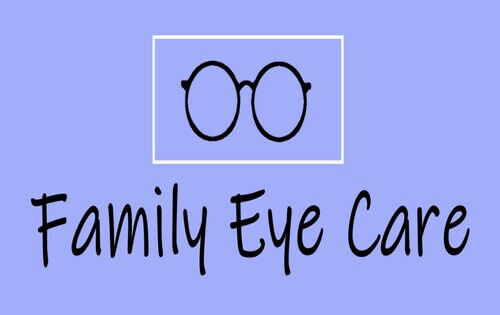Eye Center in Andalusia: Advanced Vision Treatment Services Available
The Full Failure of Retina Disorders and Just How They Influence Your Vision
Retina conditions can disrupt this fragile process, leading to a range of vision impairments. By exploring the makeup of the retina, typical disorders that can impact it, their reasons, symptoms, and available therapy choices, we can acquire useful insights into maintaining and securing our vision.
Summary of Retina Makeup
The intricate framework of the retina functions as the structure for visual understanding and plays a vital role in the process of transforming light into neural signals for the brain to translate. Situated at the back of the eye, the retina includes several layers that function with each other perfectly to facilitate vision. At the core of this complicated structure are photoreceptor cells called cones and rods. Poles are liable for vision in low light problems and finding motion, while cones are necessary for color vision and thorough visual acuity. These photoreceptor cells convert light power into electrical signals that are after that refined by other retinal cells, such as bipolar cells and ganglion cells. The bipolar cells transfer signals from the photoreceptors to the ganglion cells, which subsequently send out these signals through the optic nerve to the mind for aesthetic processing. Comprehending the detailed makeup of the retina is essential in understanding just how vision functions and how different retina problems can impact visual understanding.

Typical Retina Disorders
Retina conditions include a series of conditions that impact the detailed framework of the eye responsible for visual handling. One common disorder is age-related macular degeneration (AMD), a leading cause of vision loss in individuals over 50. AMD impacts the macula, a part of the retina important for sharp main vision, causing blurriness or dead spots in the main aesthetic area.
One more common problem is diabetic retinopathy, happening in individuals with diabetes mellitus. High blood sugar levels damage the blood vessels in the retina, resulting in vision disability or blindness if left untreated. Retinal detachment is a severe condition where the retina draws away from its typical placement, creating an abrupt start of drifters, flashes of light, or loss of vision in a curtain-like pattern.
Last but not least, retinitis pigmentosa is a team of congenital diseases that cause the failure and loss of cells in the retina, leading to night blindness and a gradual narrowing of the aesthetic area - cardiologist andalusia. Understanding these usual retina conditions is important in preserving vision and looking for prompt medical treatment
Reasons For Retina Disorders
Various variables add to the development of retina problems, consisting of genetic predispositions, way of living options, and underlying health problems. Genetic proneness play a considerable role in several retina conditions, such as retinitis pigmentosa and macular deterioration. Individuals with a family members history of these problems are at a greater risk of creating them because of acquired genetic anomalies affecting the retina's feature.
Lifestyle options can also affect retina health. Cigarette smoking, my website for instance, has actually been connected to an enhanced threat of age-related macular degeneration, a typical retina problem that can result in vision loss. Poor nutritional habits doing not have essential nutrients like vitamins A, C, and E, in addition to omega-3 fats, can also add to the growth of retina disorders.
Diabetic retinopathy, a complication of diabetes, can cause damages to the blood vessels in the retina, leading to vision impairment. High blood pressure can result in hypertensive retinopathy, where high blood stress influences the blood vessels in the retina, possibly creating vision issues.
Symptoms and Diagnosis
Given the substantial effect that triggers such as hereditary proneness, way of living choices, and underlying health conditions can have on the advancement of retina conditions, it is important to acknowledge the symptoms and make use of reliable analysis techniques for very early discovery and administration. Signs of retina disorders can differ relying on the particular condition yet may consist of obscured or misshaped vision, click over here now the unexpected appearance of advances or flashes of light, a dark place in the facility of your vision, or a progressive loss of central vision. It is important to seek immediate clinical interest. if you experience any of these symptoms.
Early detection with normal eye tests is key to stopping vision loss and handling retina problems effectively. If identified with a retina condition, your medical care provider will work with you to create a customized therapy strategy click here for more to preserve your vision.

Therapy Alternatives and Administration
Efficient management of retina problems includes a complex technique that incorporates customized treatment alternatives to deal with certain problems and preserve visual function. Therapy alternatives for retina disorders vary depending upon the underlying cause and intensity of the condition. In situations of retinal detachment, surgical interventions such as vitrectomy or scleral fastening might be essential to reattach the retina and stop vision loss. For conditions like age-related macular deterioration (AMD), treatments like anti-VEGF shots or laser treatment can help reduce down condition progression and preserve remaining vision.
Routine eye exams and early detection of retina problems are necessary for successful administration and treatment outcomes. Patients with retina disorders need to function carefully with their ophthalmologist to develop a tailored therapy plan that resolves their specific requirements and aids maintain optimum aesthetic function.
Conclusion
Finally, recognizing the composition of the retina, common problems, creates, symptoms, medical diagnosis, and treatment choices is important in handling vision impairments. Retina disorders can considerably affect vision and quality of life, making early discovery and proper management necessary. By staying informed regarding these problems and looking for appropriate medical treatment, individuals can much better protect their vision and keep general eye health.

Understanding the complex makeup of the retina is basic in comprehending how vision functions and exactly how different retina disorders can influence visual assumption.
Retinal detachment is a major condition where the retina draws away from its typical placement, creating an abrupt start of floaters, flashes of light, or loss of vision in a curtain-like pattern.
Symptoms of retina conditions can vary depending on the certain condition however might consist of obscured or misshaped vision, the abrupt look of drifters or flashes of light, a dark place in the facility of your vision, or a steady loss of main vision.In final thought, recognizing the composition of the retina, usual disorders, triggers, signs and symptoms, diagnosis, and therapy alternatives is important in taking care of vision impairments.